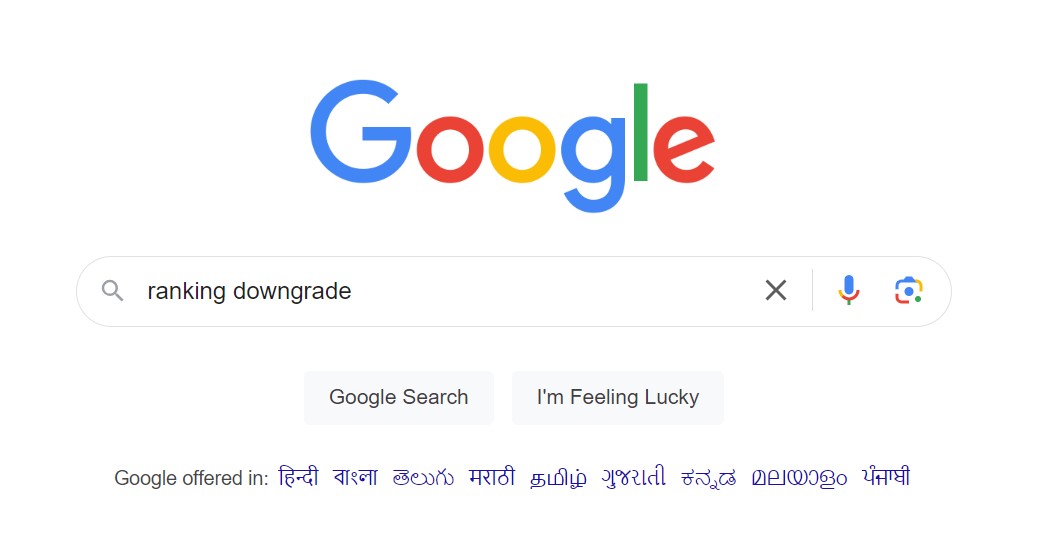Google Confirmed That Content Drastically Different From the Main Theme Result May Downgrade
Recently, Google confirmed that content drastically different from the main theme of a website may result in a ranking downgrade.

Recently, Google confirmed that content drastically different from the main theme of a website may result in a ranking downgrade. This change is part of Google’s ongoing effort to ensure that users receive the most relevant content based on their search queries. For SEOs and content creators, it highlights the importance of maintaining thematic consistency across their sites.
In simple terms, Google wants to match user expectations by ensuring that the content on a page aligns with the site’s overall purpose or focus. When a website deviates too much from its primary content, Google may consider the unrelated sections less valuable and potentially reduce their visibility in search results.
How Google Identifies “Main” Content
Google uses a system called centerpiece annotation, which helps determine the primary focus of a webpage. Through this process, the search engine analyzes the semantic structure and layout of a page to identify its main topic. If the majority of a webpage covers one subject (let’s say politics for a news site), but another section focuses on a completely unrelated topic like celebrity gossip, Google might downgrade the importance of that off-topic content.
This annotation is especially important in maintaining content relevancy. Google evaluates both content themes and the layout to determine what content is central (or centerpiece) and what content is secondary or off-topic. Any unrelated content is weighed differently and may not contribute positively to rankings.
Example: How This Impacts News Websites
Let’s take the case of a news website that mainly covers politics. If this site suddenly publishes articles about home decor tips, the content would be starkly different from the site’s primary focus. Google would recognize that most of the website is about politics, and thus the home decor articles might not be given much ranking weight.
Here’s what happens:
Main Content Focus: The site’s core content is political news.
Off-Topic Content: New articles about home decor, which have little connection to the site’s main political theme.
Ranking Impact: Google may consider these off-topic articles less relevant to the site’s primary audience, and as a result, these articles (and possibly the site’s overall rankings) could be negatively impacted.
Why This Matters for SEOs
For SEOs managing content-heavy websites like news portals, this means focusing on thematic consistency. When planning content, it’s crucial to ensure that articles align with the core focus of the website. Here’s what to consider:
Audience Intent: What is your audience looking for when they visit your site? Make sure your content consistently addresses this intent.
Content Strategy: Keep your content relevant to the primary topics your site covers. If you want to branch into different subjects, it may be better to create a separate site or section clearly delineated with its own brand and focus.
Structured Data: Implement schema markup, especially if your site covers a broad range of topics. Structured data can help Google better understand your content’s organization, ensuring that off-topic content doesn’t affect your primary focus
Common SEO Mistakes to Avoid
Here are some mistakes to avoid if you want to keep your rankings intact:
Diverse but Unfocused Content: Posting content about random, unrelated topics can confuse Google’s algorithms and your users.
Keyword Dilution: Avoid stuffing your pages with irrelevant keywords that don’t align with your website’s primary topics. This can dilute the page’s focus, and Google may downplay your rankings for those keywords.
Ignoring User Expectations: When visitors come to your news site, they expect news content. If they find unrelated articles or content that doesn’t match their expectations, it can hurt user engagement and bounce rates, further impacting rankings.
Takeaways:
In summary, Google is continuously refining how it evaluates content relevancy. For SEOs, this means sticking to a website’s core theme and avoiding the temptation to publish unrelated content for short-term traffic gains. If you’re running a news website, ensure your content strategy stays focused on your niche to avoid ranking penalties.
By keeping your site’s content aligned with its main purpose and using Google’s recommended practices like schema markup, you can maximize your site’s SEO potential and maintain better rankings.
